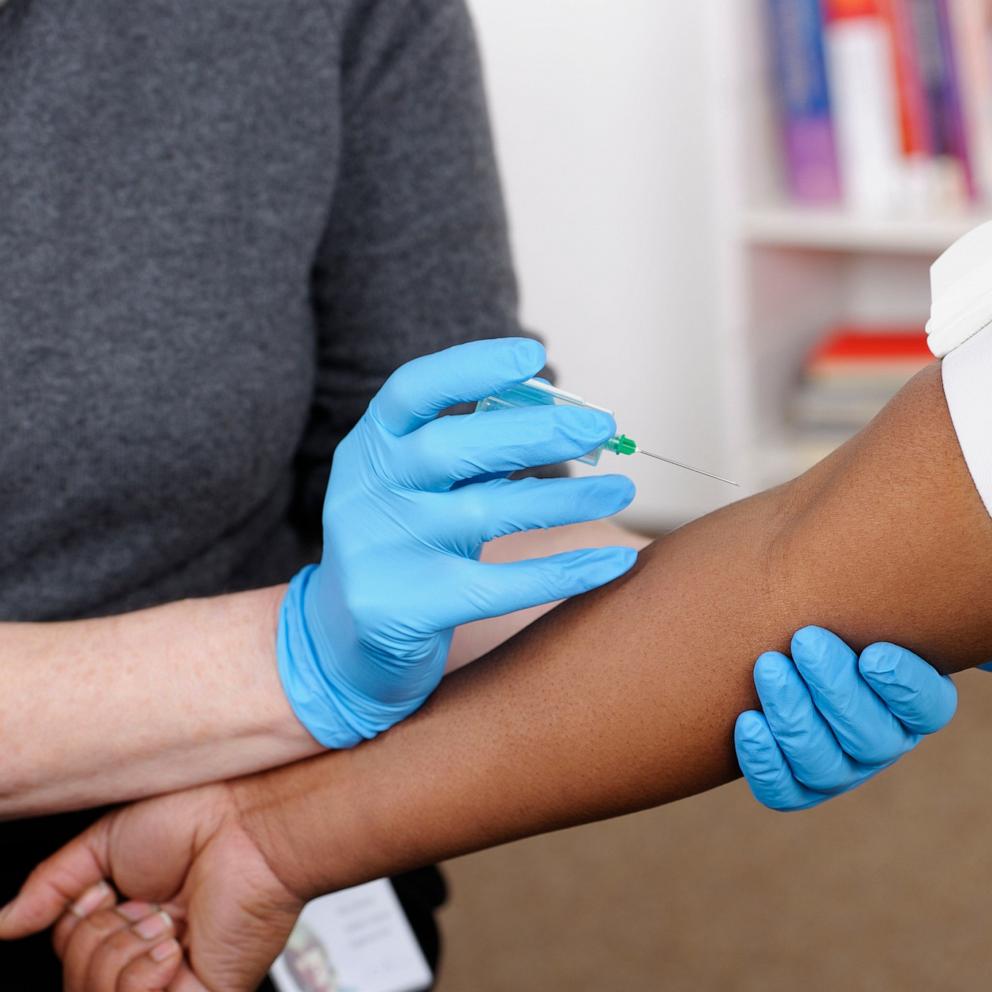5 mental health tips for extra hard days
May is Mental Health Awareness Month, with experts across the country raising alarms about a growing mental health crisis.
Over 94 million Americans experienced symptoms of anxiety or depression in the past four weeks, according to the Centers for Disease Control and Prevention.
Dr. Jake Goodman, a psychiatry resident doctor who advocates for mental health awareness on social media, described the numbers as "staggering," telling ABC News, "We have to talk about this."

Goodman and other mental health professionals said one of the keys to mental wellness is prevention: Ensuring you are taking care of yourself on a daily basis.
ABC News interviewed mental health professionals to learn about their top coping strategies for extra hard days when anxiety and depression feel out of control.
1. Find a therapist or mental health professional.
Mental health professionals said finding a trusted mental health therapist is the first step.
Ideally, this is someone you can seek advice on especially hard days, experts said.
"It is important to cast a wide net, as the most important factors for a therapy relationship are trust and safety," Dr. Kali Hobson, an Atlanta-based adult and child adolescent psychiatrist, told ABC News.

Anyone having a mental health emergency should call or text 988, the Suicide & Crisis Lifeline, which provides free and confidential support 24 hours a day, seven days a week.
Experts said there are many barriers to starting therapy. For one, it can be expensive, especially for people without insurance coverage.
"In an effort to address insurance barriers and access, some therapists offer a 'sliding scale' cost based on income -- ask about it." said Hobson.
Stigma can be another barrier to seeking mental health help, even for professionals.
"I regret not getting therapy sooner," Goodman said. "I had my own stigma about therapy. I used to think that therapy was only for people with severe mental health issues."
Dr. Osose Oboh, a Maryland-based internal medicine resident doctor, said some of her patients initially worry about being stereotyped as crazy, being misunderstood, or being from different cultures and having to educate while trying to heal.

Therapy is not a quick fix, and you may need to meet with a few therapists to find the best match. But experts said the long-term payoff can be significant.
"You are investing in yourself by giving yourself time to sort out the things you've experienced in this life," Oboh said.
Experts recommended approaching therapy with an open mind, clear written goals, and a willingness to hear things you may have to work on.
Goodman also said it's best not to share your therapist with friends or family members.
2. Identify healthy coping strategies that work for you
There are many positive coping strategies that can help people get through difficult days, experts said.
"For some people, coping may look like running a marathon, and for others, it might be binge-watching a show in bed," Hobson said. "Don't compare your coping skills to others. If it helps, it helps."
Oboh said running, journaling, or listening to music helped when she didn't have the words to express how she was feeling.
As for finding the time in your schedule, Oboh said to pay attention to how you divide your time, especially time spent scrolling on devices.
"If you're not giving yourself time, then who are you giving it to?" she said.
Social media can be a helpful way to find community, but it can also be harmful.
Oboh and other experts recommend that if you are depressed or anxious, or constantly comparing yourself in your life to other people, take a break from social media.
3. Know your adverse childhood experiences
Many people have experiences in childhood that include traumatic events, neglect, or abuse that may have contributed to mental health diagnoses later in life, experts told ABC News.
By understanding yourself better, experts say this self-awareness about past trauma can help people cope during their hardest days.
Knowing about potentially triggering events won't eliminate bad days, but when people have a better understanding of why they feel so upset, it may help them remember to practice coping mechanisms, according to Oboh.
"[Think] about your experiences from childhood that still bring you to tears...bring out strong emotions ...anger," Oboh said, explaining those are the things that need healing.
4. Know when to seek professional help
In an emergency, seek qualified professional help, the experts said
It can be hard to know when to seek help, but there are some good indicators that you may need immediate assistance.
If you are experiencing a few of the following, trouble sleeping, less interest in activities you love, feelings of worthlessness, less energy, trouble concentrating, increased or decreased desire to eat, easily angry, or feelings of not wanting to live, or wanting to harm others, then speak to your doctor, according to Oboh.
Oboh noted that if you've ever wondered if anyone would care if your car flipped over a median, it can be classified as passive suicidal thoughts and should be taken seriously.
"Typically, if your symptoms are impacting your functioning at school, job, social life, relationships ... it is to the point where therapy and the consideration of medication would be recommended," added Hobson.
In an emergency, Goodman states, "[Go] to an emergency room and let a physician know what you're going through"
Oboh, Goodman, and Hobson agree that getting help sooner than later is very important because your mental health can decline quickly.
5. Don't be afraid to take medication
According to Hobson, behavior and therapy strategies are used first before moving on to medication, but for some people, therapy plus medications is the best path to mental wellness.
Before starting a medication, you should talk about risks and benefits with your doctor. Ultimately, it's your decision.
People who are having a hard day should never self-medicate with drugs or other substances that are not prescribed by a doctor. Instead, call a psychiatrist to explain how you are feeling. If it feels like a crisis, people can find a nearby emergency room or emergency psychiatric care center for same-day medical care, according to Oboh, Goodman and Hobson.
As we exit the pandemic and continue to seek a normal life, experts say some days will be harder than others, but it's okay to have some bad days.
If you are struggling with thoughts of suicide or worried about a friend or loved one, call the Suicide & Crisis Lifeline at 988 for free, confidential emotional support 24 hours a day, seven days a week.
Sotonye Douglas, MD, MS, is a general surgery resident, and a member of the ABC News Medical Unit.




